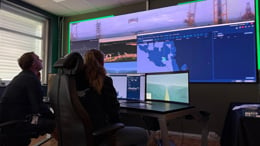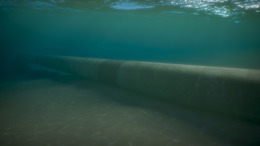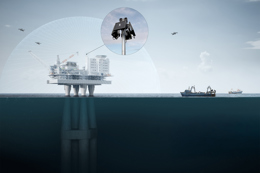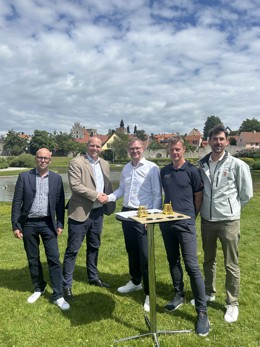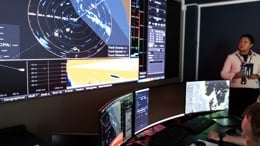
Protecting critical infrastructure
Infrastructure once out of sight, now top of mind — led by KONGSBERG
Subsea pipelines, power cables, offshore platforms, and sensor arrays have become critical to modern society — and increasingly vulnerable. The 2022 sabotage of gas pipelines in the Baltic Sea marked a turning point: maritime infrastructure is no longer seen as passive utility, but as a strategic asset at risk of disruption. In response, KONGSBERG took the lead, coordinating expertise across the entire group to develop a unified solution. This new offering integrates subsea autonomy, satellite surveillance, traffic monitoring, and real-time analytics into one scalable system — redefining how nations and industries protect their underwater infrastructure.

What's at stake: from seabed to surface
Critical maritime infrastructure covers a wide and complex landscape. Below the surface, this includes subsea oil/gas wellheads and risers, gas pipelines, fibre-optic communications cables, high-voltage power lines and renewables installations. Above the surface, it extends to floating production units, platforms, ports and other coastal facilities. Each element serves a vital function in energy security, economic continuity and national resilience – and each requires tailored, domain-specific monitoring.
Domain-wide coverage, fused into one picture
KONGSBERG technologies are designed to work across all layers of the maritime environment. Data is collected via satellite, radar, AIS, subsea sensors and autonomous vehicles – and fused using advanced software, AI and machine learning. The result is a live, integrated picture of activity across wide areas, with real-time alerts, anomaly detection and post-incident replay capabilities. It’s not just about gathering data – it’s about making sense of the data in time to act.
Collaborative by design. Trusted in operation.
KONGSBERG is actively engaged in European Defence Fund projects and national-level collaborations, working with authorities, coast guards, navies and private industry. Our test bed in the Oslofjord established in June 2025 offers an arena for technology demonstrations, scenario testing and training based on live monitoring data. Whether protecting a single offshore installation or securing multi-national infrastructure corridors, the goal remains the same: increase visibility, reduce risk and protect society.
Related news and articles
Want to learn more?
Get in touch to talk to one of our experts on how to protect critical infrastructure.
